Russia is using the justice system to persecute Ukrainians: ZMINA together with the MIHR presented a research
On 31 March, the Ukrinform news agency presented research on Russia’s policy of judicial persecution of Ukrainian civilians and prisoners of war, which has signs of war crimes and crimes against humanity. The authors of the research are the Human Rights Centre ZMINA, the Media Initiative for Human Rights (MIHR), the online publication Graty and the NGO Crimean Process.
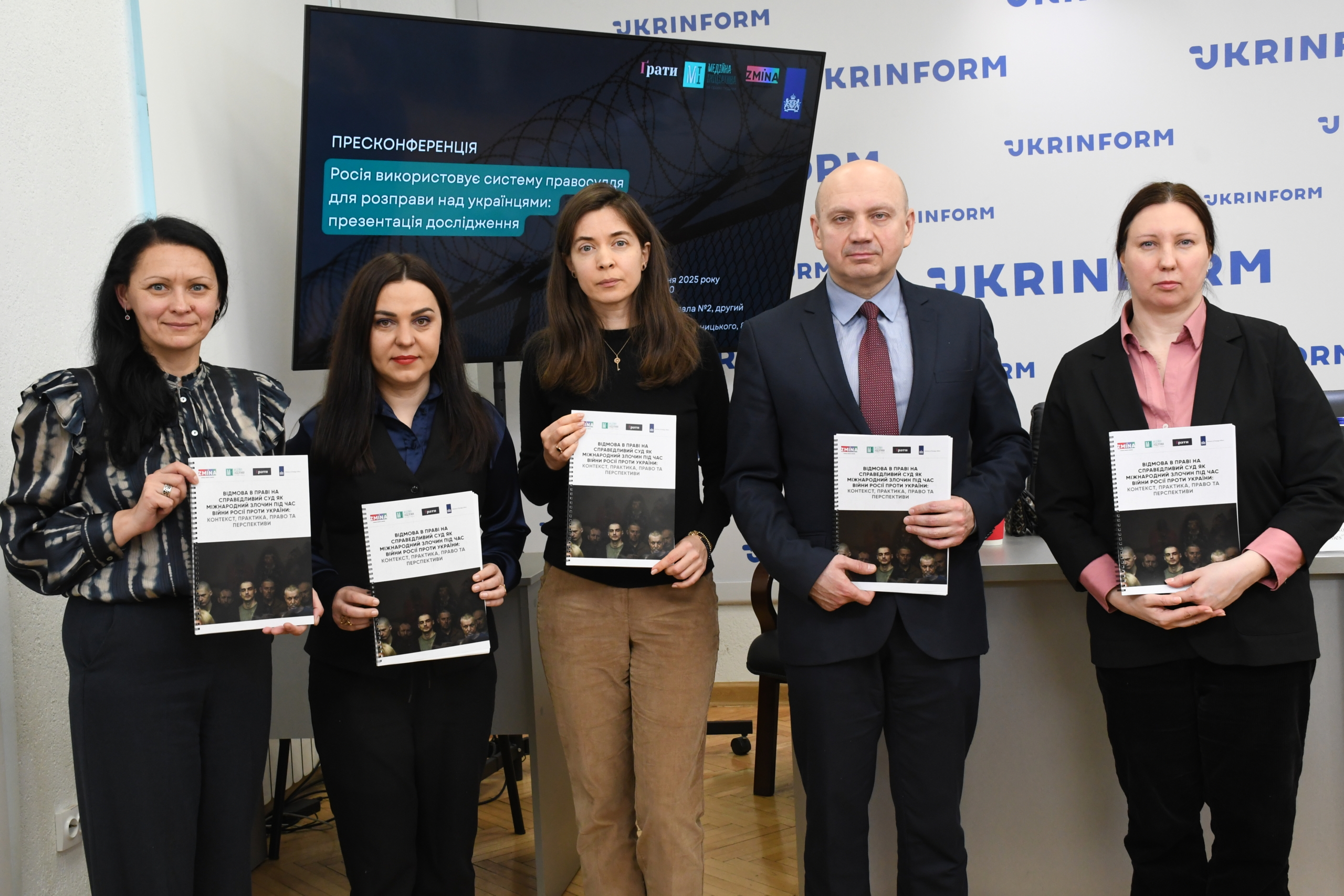
The research “Denial of the Right to a Fair Trial as an International Crime during Russia’s War against Ukraine: Context, Practice, Law and Prospects” is based on the results of monitoring and analysis of hundreds of trials of Ukrainian citizens in Russia and the territories it occupies.
The authors of the research spoke about the policy of judicial persecution of Ukrainian citizens in the temporarily occupied territories and the Russian Federation with the use of Russian legislation, law enforcement, judicial systems, and media outlets.
ZMINA was responsible for collecting data from the Crimean occupation courts. The Head of the Board of the Human Rights Centre ZMINA, Tetiana Pechonchyk, said that Russian-controlled courts in occupied Crimea are committing repressions against Ukrainians.
“Courts in occupied Crimea have long ceased to be a place where justice can be found. It is rather a part of the repressive mechanism that serves the Russian occupation authorities. People are tried not for crimes, but for their pro-Ukrainian position, for their unwillingness to tolerate the occupation, for their attempts to resist. Instead of the law, there is terror, instead of justice, there is fabrication of cases and harsh sentences that have one goal: to make people afraid and keep them silent,” said Tetiana Pechonchyk.
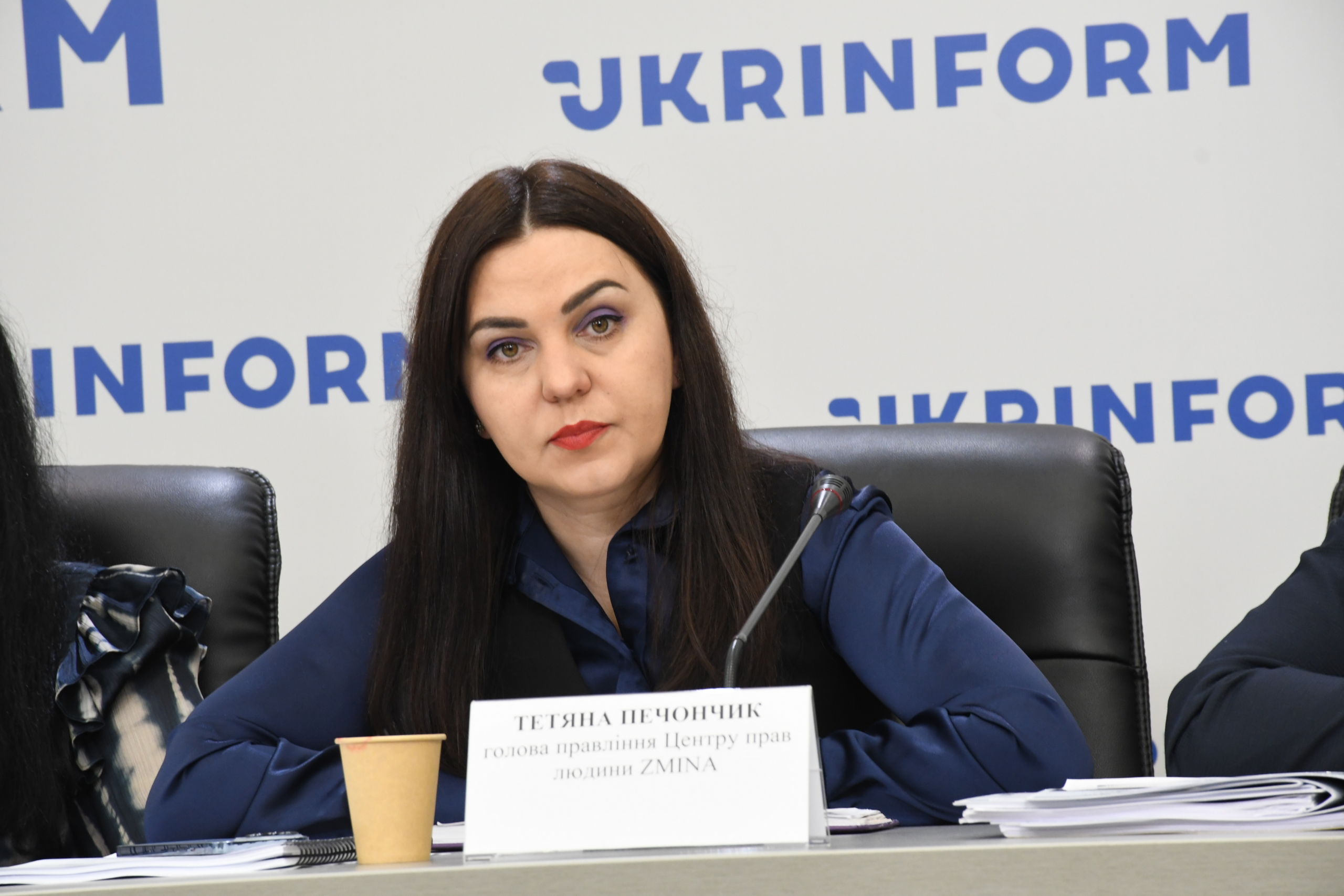 Tetiana Pechonchyk
Tetiana PechonchykShe added that in Crimea, the number of cases on charges of “high treason” has increased sharply in recent years. In 2024, there were 35 of them, while before 2021, there were none at all. These trials are held behind closed doors, without the possibility of external control.
In addition, according to the Head of the Human Rights Centre ZMINA, Ukrainian citizens who were previously abducted from the newly occupied territories and transported to Crimea are now being returned and tried in newly established “courts” in the occupied parts of the Kherson and Zaporizhzhia regions. Access to these processes is restricted, and the justice system itself operates in a completely non-transparent environment.
The head of the Media Initiative for Human Rights, Tetiana Katrychenko, has announced the latest data on Russia’s use of courts as a tool for persecuting Ukrainian military and civilians. According to her, since the start of the full-scale invasion, Russia has completed or is still reviewing at least 600 cases against Ukrainian citizens. These judicial processes are accompanied by systematic human rights violations, including torture.
“According to our data, there are currently 94 cases in Russia concerning Ukrainian military personnel that are either under review or already concluded, with at least 151 defendants involved. As for military personnel under occupation, we know about 218 cases and 342 defendants. If we talk about the occupied territories of the Donetsk and Luhansk regions, as well as the occupied territories of the Zaporizhzhia and Kherson regions, we are talking about 196 cases involving civilians and 267 defendants. As for the trials of civilians in the Russian Federation, there are 236 such cases and 269 defendants,” Katrychenko said, adding that Russian security forces also detain Ukrainian military personnel on the territory of the Russian Federation, in particular in the Kursk region, where 85 Ukrainian military personnel are on trial.
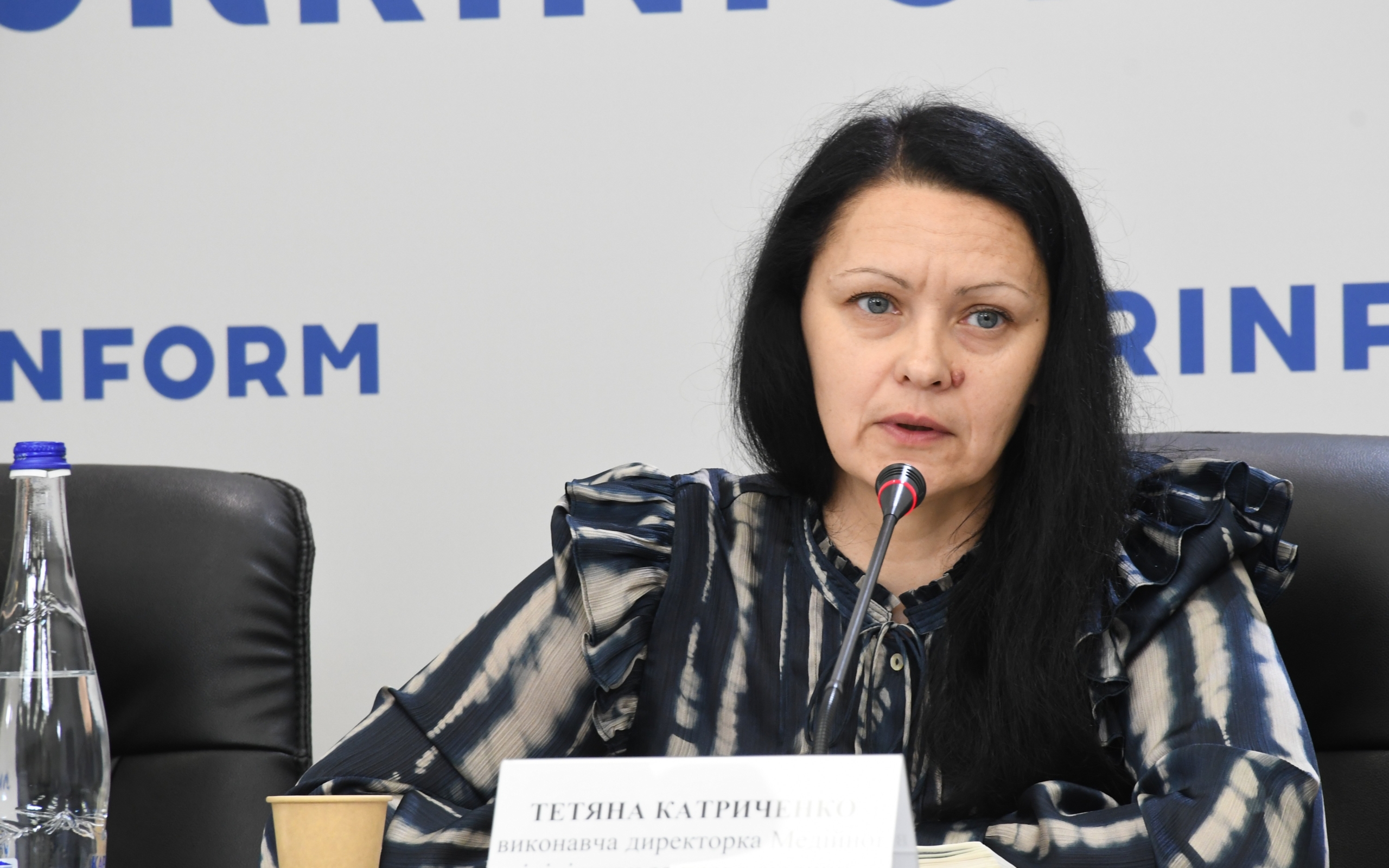 Tetiana Katrychenko
Tetiana KatrychenkoAccording to Katrychenko, there are also trials against about 75 Ukrainian citizens that began before 2022.
Russia is actively building new cases against Ukrainians, using torture to obtain testimony.
“We document that testimonies in these cases are obtained under pressure and torture. In cases involving civilians, the charges often relate to “espionage” or “extremism,” Katrychenko said.
According to human rights defenders, these statistics are not final, and the scale of persecution continues to grow.
Sergiu Ostaf, the Director of the Resource Centre for Human Rights (Moldova), stressed that courts under Russian control formally approve charges brought by law enforcement agencies as part of Russia’s state policy of persecuting Ukrainian civilians and military personnel.
“Thousands of people are being persecuted with systematic violations of fair trial standards, where sentences are politically motivated. This gives grounds to talk about the crime of persecution by deprivation of the right to a fair trial,” said Ostaf.
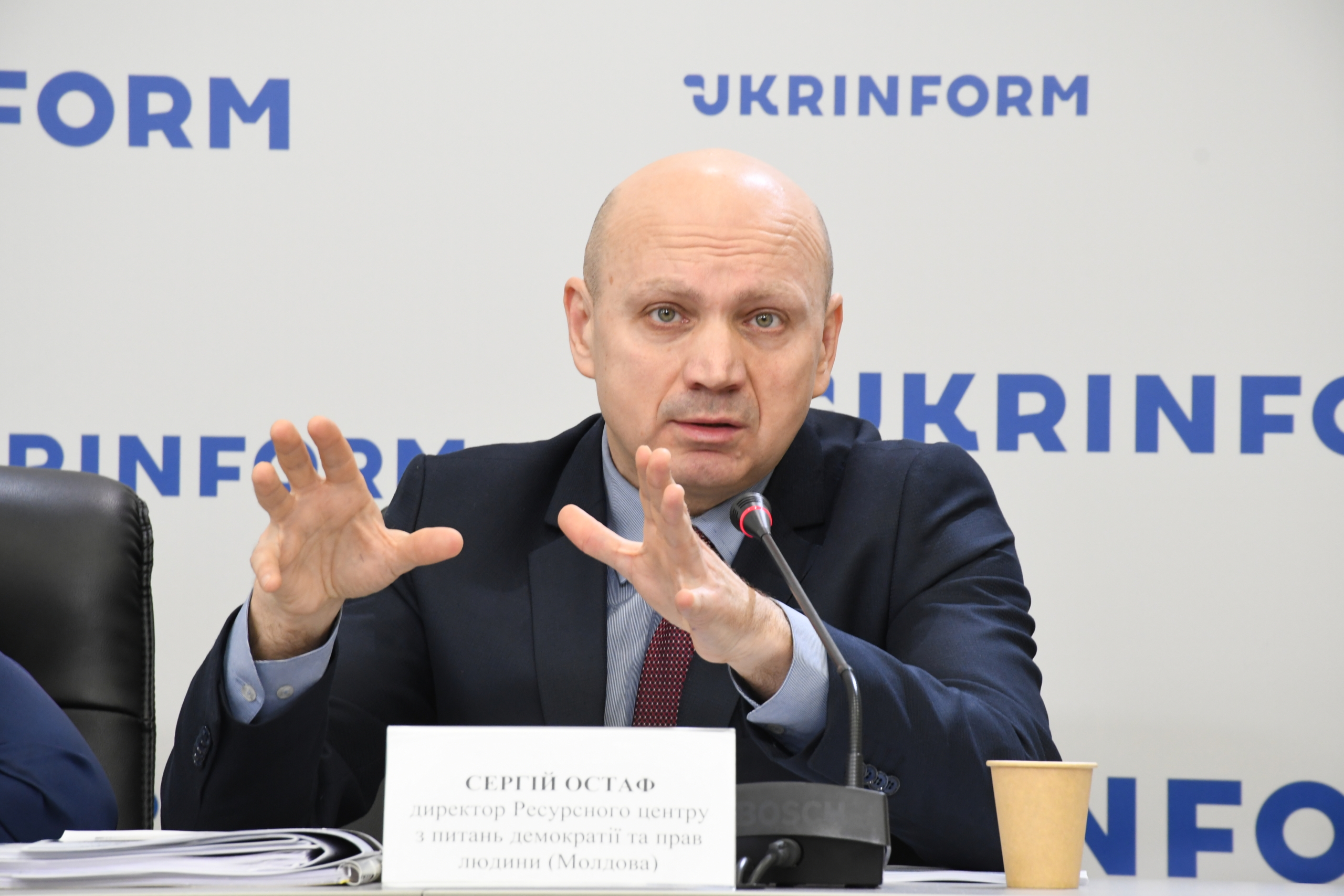 Sergiu Ostaf
Sergiu OstafDaria Svyrydova, Partner at Azones Law Firm, noted that the Russian policy of judicial persecution has signs of war crimes and crimes against humanity.
“The results of our research clearly demonstrate that the large-scale and systematic denial of fair justice to Ukrainian civilians and prisoners of war in Russian-controlled courts is not just an individual human rights violation or war crime. This is a coordinated state policy aimed at suppressing Ukrainian resistance to the occupation, using the fear of persecution to control the population and justify the Kremlin’s stated goals of aggression against Ukraine,” said Daria Svyrydova.
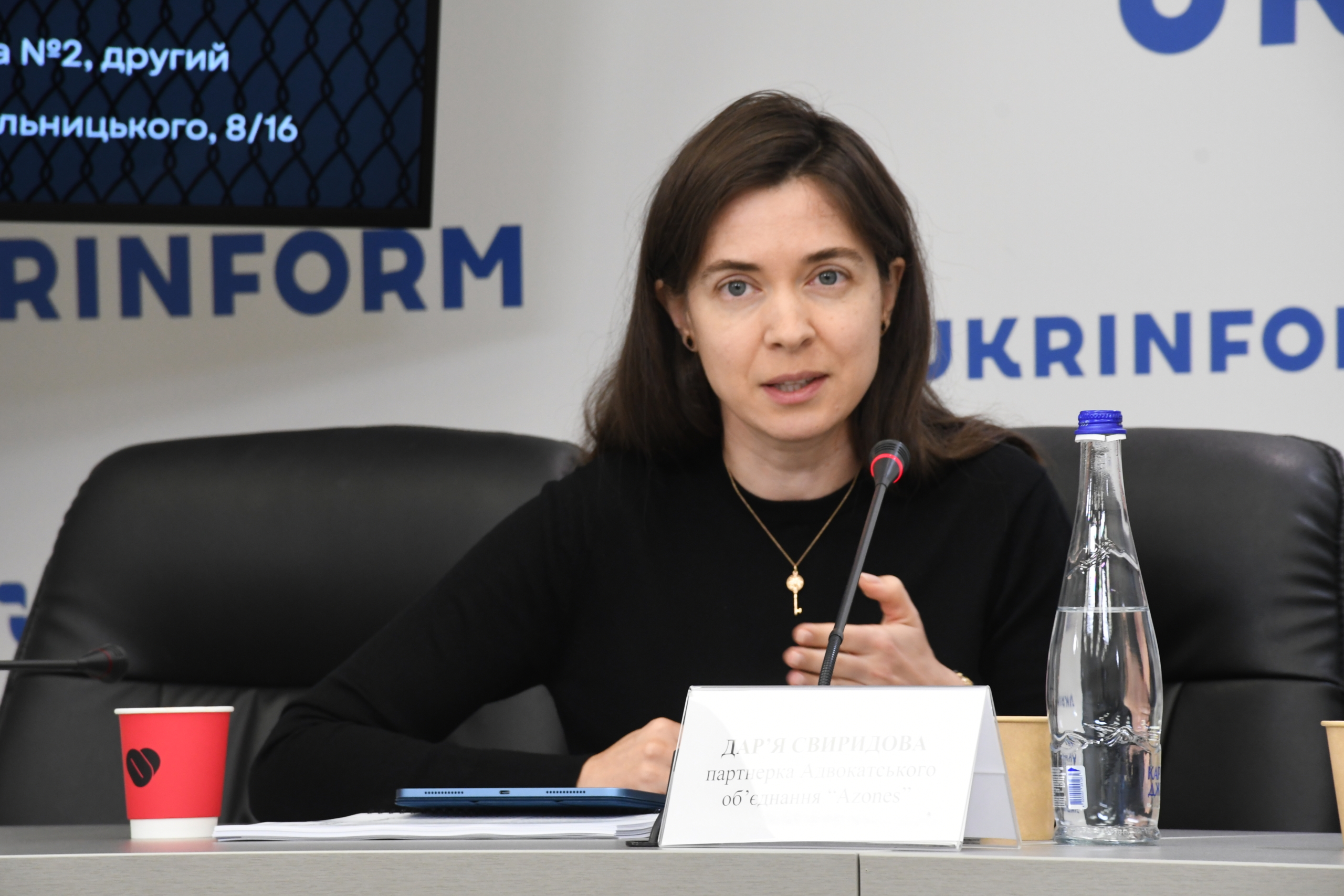 Daria Svyrydova
Daria SvyrydovaAccording to researchers, the number of victims of this policy could be 5-6 thousand Ukrainian citizens.
In conclusion, Tetiana Pechonchyk noted that the research will be submitted to the International Criminal Court to investigate these crimes and bring the perpetrators to justice.
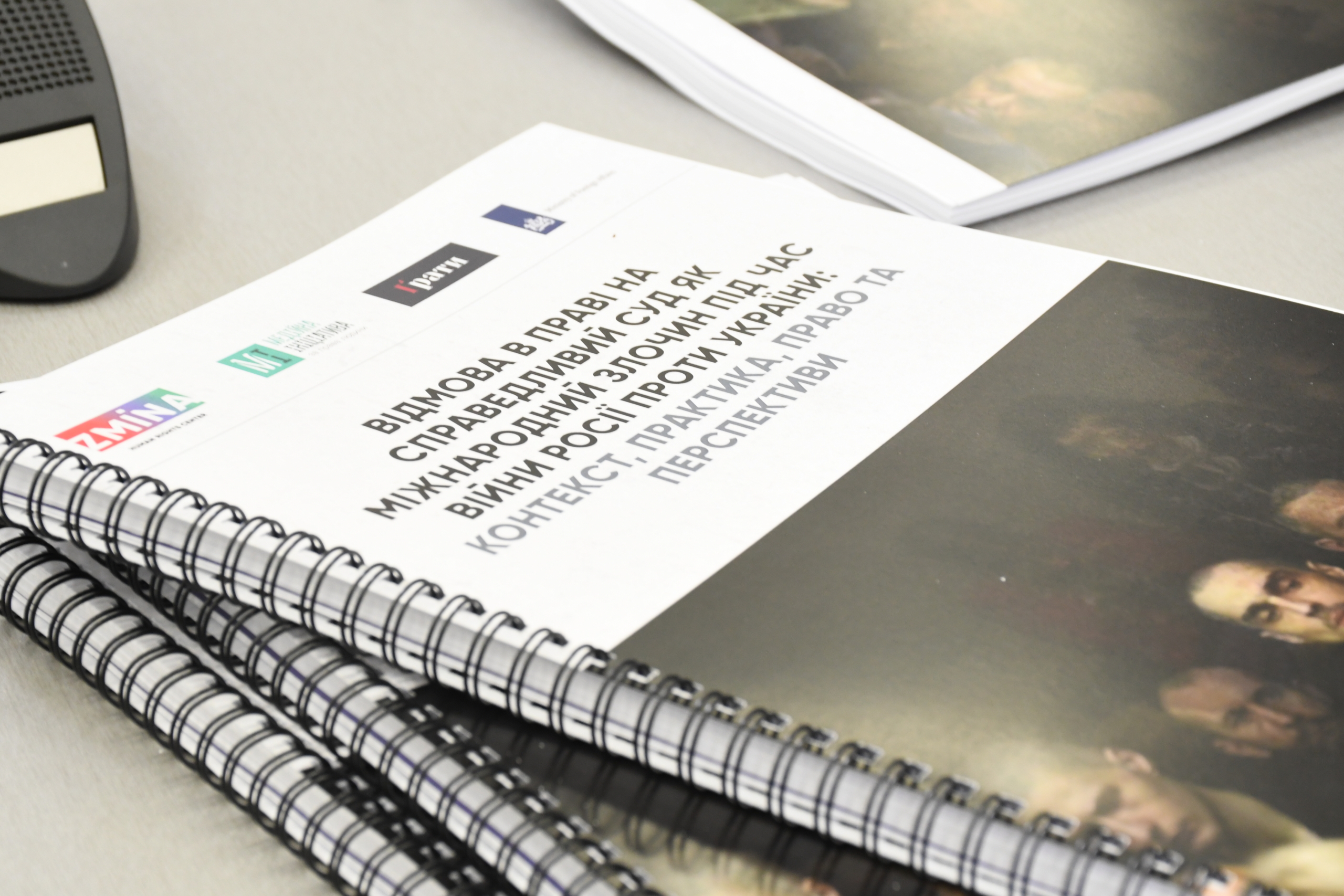
The research text is available on the Human Rights Centre ZMINA website at this link.
You can watch the recording of the broadcast here.
The preparation of the research and the event were made possible by the support of the Ministry of Foreign Affairs of the Netherlands.
If you have found a spelling error, please, notify us by selecting that text and pressing Ctrl+Enter.















